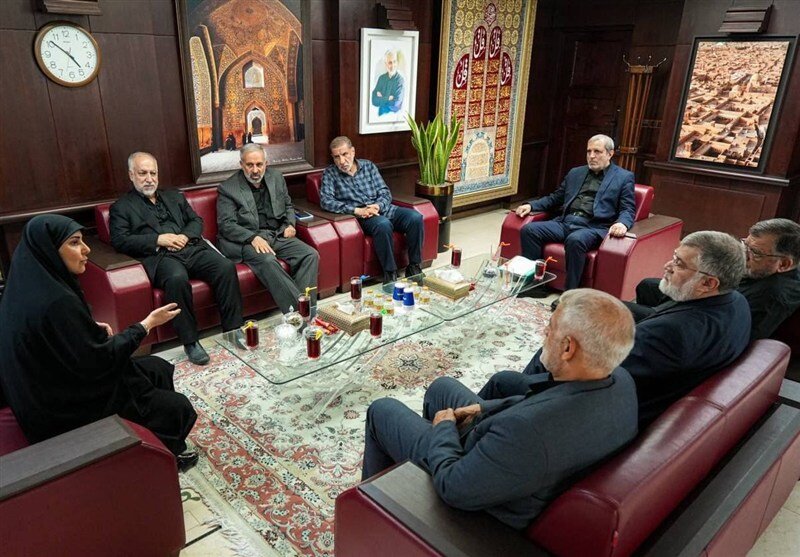Rebuilding areas damaged by Israeli aggression a priority of transport, urban development ministry

TEHRAN - Iran’s Minister of Transport and Urban Development Farzaneh Sadegh emphasized that rebuilding areas damaged by the Israeli aggression is one of the priorities of her ministry.
In a meeting with the governor-general of Tehran province and some members of parliament, the minister stated that the reconstruction of areas damaged in the 12-day war of the Zionist regime is the most important priority of the ministry and said: “The Damage Assessment and Housing Reconstruction Committee of the Crisis Management Headquarters of the Ministry of Transport and Urban Development has developed a reconstruction plan for damaged areas, including residential, commercial, administrative, private areas, and government buildings, and will spare no effort to implement it.”
The minister has also called for city master plans to incorporate passive defense principles, including revised construction standards for high-rise buildings to ensure greater public safety.
Speaking at the sixth session of Iran’s Supreme Council of Urban Planning and Architecture this year, which focused on the Astara master plan, urban development in Gonbad-e Kavus, and the proposed addition of military training grounds to the city limits of Gorgan under the National Housing Movement, Sadegh emphasized the heightened need for urban resilience.
“On the eleventh day of all-out war with the enemy, it’s evident that Israel’s calculations have collapsed in the face of public solidarity,” said Sadegh, who chairs the council. “They believed they could sway the people, but they have failed—and this failure increases the weight of our responsibilities as officials.”
Sadegh urged council members and technical committees to ensure population centers are not located near high-risk facilities and to prioritize passive defense criteria in all comprehensive plans.
She also called for a review of construction practices for tall buildings, particularly regarding the integration of shelters and safety measures for residents.
The minister said the Road, Housing and Urban Development Research Center will lead the review of high-rise construction protocols, with findings to be submitted for consideration and approval in upcoming sessions of the council.
On June 22, Sadegh ordered expediting the reconstruction of the residential units damaged in the war.
While visiting residential units damaged by the Zionist regime's aggression in Tehran, Farzaneh Sadegh announced efforts to expedite the operation of reconstructing these units, saying: "We will support the reconstruction of these units quickly."
According to a report by the Ministry of Transport and Urban Development, the minister visited areas damaged in the Israeli war in the capital, including the residential homes of the country's nuclear scientists destroyed in the Zionist regime's attacks.
During this visit, in order to implement the president's order on the necessity of reconstructing the damaged areas, facilitation for assessing the extent of the damage and facilitation in the reconstruction of these units were discussed.
The minister also referred to the start of recording damage to buildings damaged in the war, on Saturday, and announced the government's maximum support for the reconstruction and renovation of residential houses.
Sadegh said: “In coordination with the Governor-General of Tehran and the Disaster Management Headquarters, our colleagues at the Construction Engineering Organization and the Housing Foundation have begun field visits to identify and record the extent of damage to damaged buildings.”
She said: "The government will provide maximum support in the renovation and reconstruction of residential homes."
MA
